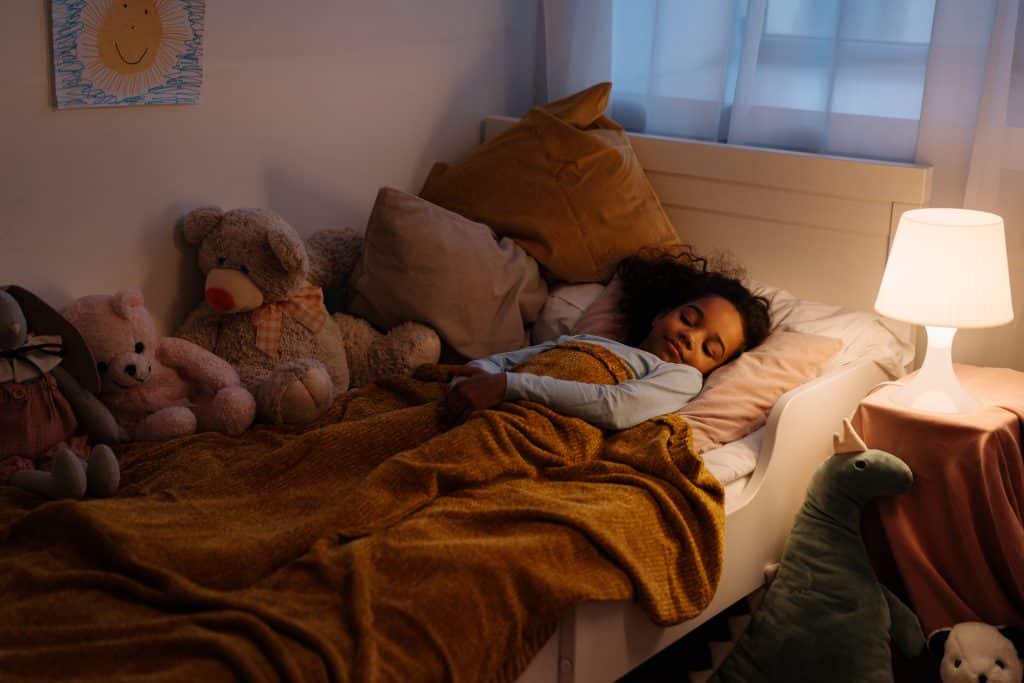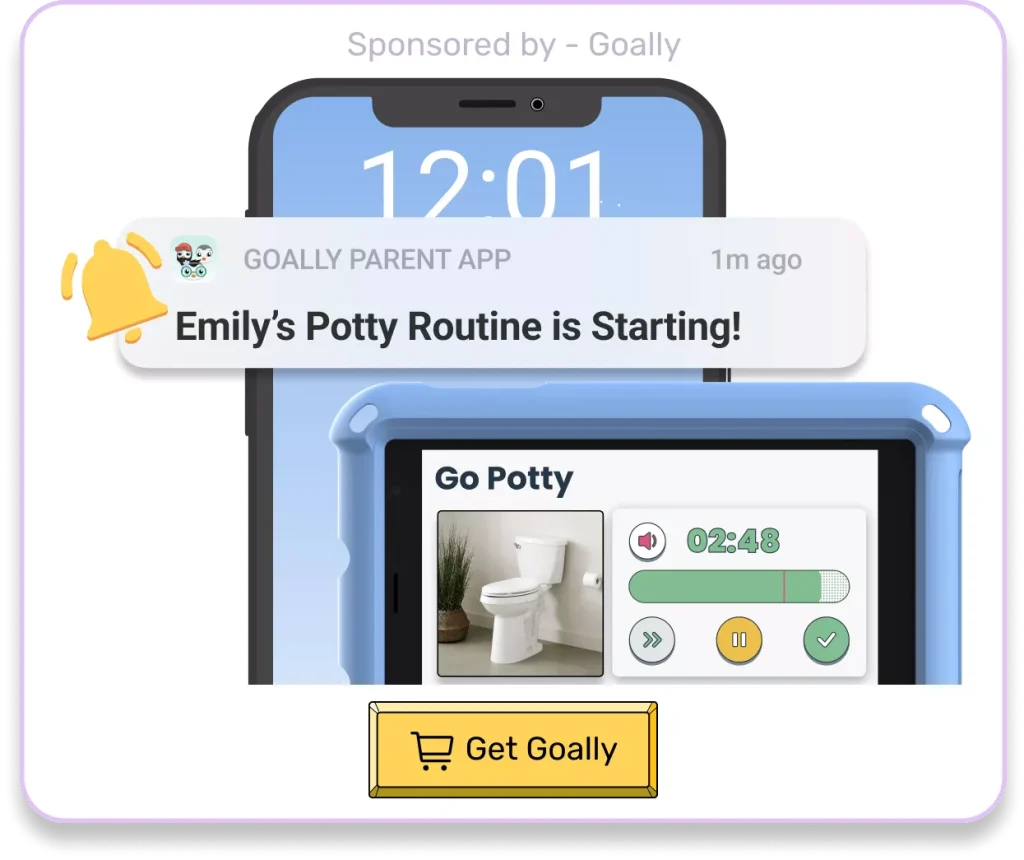ADHD sleep issues refer to the difficulties many neurodivergent kids experience with falling and staying asleep due to their unique brain wiring. This blog offers practical solutions for parents to improve their child’s sleep habits and overall health.
Key Takeaways:
- ADHD impacts a child’s ability to fall and stay asleep, often due to overactivity or racing thoughts.
- Establishing a consistent bedtime routine can improve sleep quality for neurodivergent kids.
- Consider environmental adjustments, like reducing screen time before bed and maintaining a calming sleep space.
What can I do if my child with ADHD struggles to sleep? You can help by creating structured routines, reducing nighttime distractions, and using calming techniques to promote better rest.
Table of Contents
Understanding ADHD Sleep Issues
ADHD, or Attention Deficit Hyperactivity Disorder, is commonly associated with symptoms like inattention, impulsivity, and hyperactivity. But it also affects how kids wind down at night. For many, falling asleep feels impossible. Racing thoughts, sensory sensitivities, and even overstimulation throughout the day can make a restful night seem out of reach.
Research shows that 50-70% of kids with ADHD experience sleep disturbances (CDC). Their challenges range from trouble falling asleep to frequent awakenings, leading to tired, irritable mornings. As a childcare professional, I often hear parents say, “It feels like my child has endless energy.” But there’s hope.

Read more: How to Get Enough Sleep
Why Sleep Matters for Kids with ADHD
Quality sleep isn’t just about feeling rested—it’s crucial for brain development, emotional regulation, and focus. Neurodivergent kids may already face difficulties concentrating, and lack of sleep makes it worse. Without adequate rest, symptoms of ADHD often intensify. In other words, helping your child sleep better means a better chance of thriving during the day.
For example, you might notice more meltdowns or impulsivity after a rough night. It makes sense, right? Kids with ADHD already have heightened emotions, and tiredness lowers their ability to cope. Sleep is the “reset” button their brains need, and when pressed regularly, everything from learning to social interactions becomes more manageable.
How a Routine Can Make a Difference
Consistency is key. Neurodivergent kids thrive on predictable routines. Set a bedtime and stick to it, even on weekends. Creating a bedtime routine with calming activities like reading or gentle stretching helps signal to their brain that it’s time to wind down. If your child struggles with transitions, you can use visual schedules to make each step clear and predictable.
In my experience, kids often resist change at first—especially when it involves turning off their favorite show. But over time, many families see improved sleep with routines. Make it fun. Have a “wind-down playlist” or let your child pick out cozy pajamas as part of their nightly ritual. The goal is creating a sense of safety and calm around bedtime.
Reducing Screen Time Before Bed
Screen exposure before bed can interfere with melatonin production, the hormone responsible for sleepiness. For kids with ADHD, who may already have trouble producing melatonin, this is a bigger challenge. Try implementing a “no screens an hour before bed” rule.
Instead, encourage activities like coloring, puzzle-solving, or using sensory toys that engage but calm the mind. Dim the lights, speak softly, and minimize any distractions. Remember, you’re setting the stage for rest.
Creating a Calming Sleep Space
Environment matters. Bright lights, noise, and clutter can be overwhelming, making sleep nearly impossible for some neurodivergent kids. Here are a few tips to create a sensory-friendly bedroom:
- Use blackout curtains to eliminate light.
- Consider a white noise machine to block out disruptive sounds.
- Offer weighted blankets or soft textures, depending on your child’s sensory preferences.
These adjustments may sound small, but for many families, they make a huge difference. It’s all about reducing stimulation while maximizing comfort.

Read more: Kids Sleep Disorder Test
Supplemental Strategies for Better Sleep
There are various tools and approaches parents can try. In some cases, melatonin supplements (under medical guidance) may help regulate your child’s sleep cycle. Others find success with mindfulness exercises or apps designed for neurodivergent kids.
Every child is different, so it might take some trial and error. I’ve worked with families who swore by nighttime yoga, while others found “deep pressure” massages calmed their kids down. Be flexible and patient—your child will feel your support.
Professional Help When Needed
If sleep issues persist despite your best efforts, consider speaking with a healthcare provider familiar with neurodivergent children. They can rule out underlying issues like sleep apnea or provide more tailored strategies. Behavioral therapy is also an option, teaching coping mechanisms for anxiety or hyperactivity at night.
Above all, remember that you’re not alone. There are resources and communities to lean on when things feel challenging.
Helpful Tips to Boost Sleep Quality
Boosting sleep quality for neurodivergent kids often involves small but impactful changes to their daily routine. Here are some tried-and-true methods to help your child wind down and rest more peacefully.
- Maintain consistent sleep and wake times.
- Avoid caffeine in the afternoon and evening.
- Incorporate movement or outdoor play during the day to tire your child out physically.
- Consider a “calming jar” filled with glitter and water that your child can shake and watch settle, offering a visual cue to relax.
While every child is different, incorporating these habits can create a more structured and calming nighttime routine, paving the way for improved rest over time.
Goally | Visual Scheduler for Autism
Does your child struggle with getting ready in the morning independently? Goally’s routine app on the best tablet for kids breaks down large tasks into small, achievable steps for autistic kids. Create custom routines with your own videos & pictures for every step.
To sum up, helping kids with ADHD sleep better requires patience, consistency, and flexibility. By establishing routines, creating a calming environment, and reducing nighttime distractions, you can give your child the restful nights they deserve—and enjoy better days together.
Resources:
- CHADD (Children and Adults with Attention-Deficit/Hyperactivity Disorder)
- American Academy of Pediatrics
- Sleep Foundation
FAQs About ADHD Sleep Issues
What are common sleep problems for children with ADHD? Children with ADHD often struggle with falling asleep, staying asleep, and waking up in the morning. How does ADHD affect sleep? ADHD can affect sleep by making it difficult for children to wind down and relax, causing racing thoughts or hyperactivity at bedtime, and leading to restless sleep. Can medication help with ADHD sleep issues? Yes, medication can help with ADHD sleep issues by improving focus and reducing hyperactivity during the day, which can make it easier for children to fall asleep at night. Why is it important to address ADHD sleep issues? Addressing ADHD sleep issues is important because poor sleep can exacerbate ADHD symptoms, impact overall health and wellbeing, and affect academic performance. Can diet and exercise help with ADHD sleep issues? Yes, a healthy diet and regular exercise can help with ADHD sleep issues by promoting overall physical and mental health, reducing hyperactivity and restlessness, and improving sleep quality.
This post was originally published on 02/08/2022. It was updated on 11/13/2024.

Hennah is an experienced writer and researcher, helping children with autism, ADHD, and other neurodivergent conditions. As a blog contributor for Goally, she combines her deep understanding of neurodiversity with practical advice, offering valuable insights to parents and educators.






